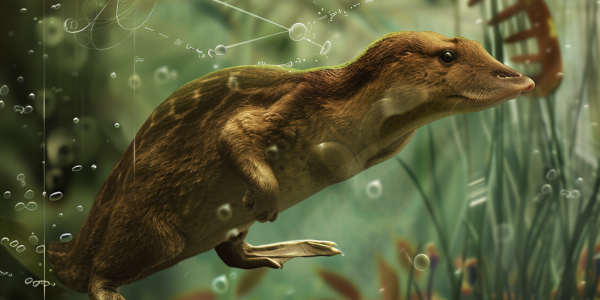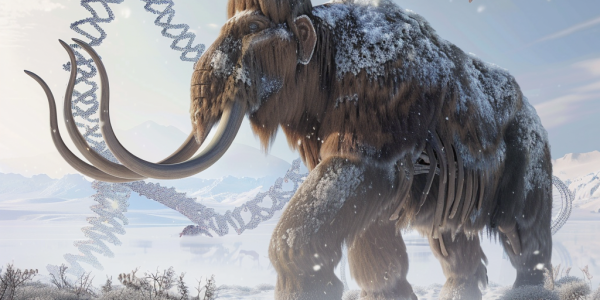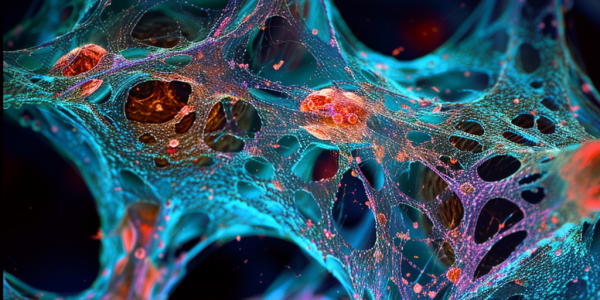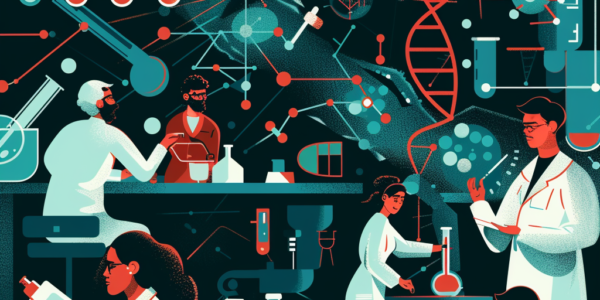Kyoto University Study Reveals New Insights into Chromosome Behavior During Meiosis
Kyoto University researchers have made groundbreaking discoveries about chromosome behavior during meiosis, revealing how chromosomes measure their lengths and determine the dissolution of cohesin. This study, published in Current Biology, provides crucial insights into the mechanisms of cell division and its implications for genetic disorders and reproductive health.
Study Links Plastic Ingredient BBP to DNA Damage and Reproductive Risks
A new study from Harvard Medical School reveals that benzyl butyl phthalate (BBP), a common plastic ingredient, may cause DNA damage and chromosome errors, raising concerns about reproductive health. This research highlights the toxic effects of BBP, commonly found in consumer goods, and its potential to disrupt genetic integrity, emphasizing the need for regulatory scrutiny and further investigation into the health impacts of plasticizers.
Exploring the Genetic Links to Autism and the Importance of Data Privacy
Explore the latest research on autism spectrum disorder (ASD) and its genetic factors, particularly the impact of sex chromosome aneuploidies. A groundbreaking study reveals how variations in sex chromosome dosage influence autism risk, shedding light on the gender disparity in ASD prevalence. Understand the implications of these findings for future research and interventions in autism, while also emphasizing the importance of privacy in the digital age.
Platypus Study Reveals New Insights into Sex Chromosome Gene Expression
A recent study on the platypus reveals new insights into gene expression balance between sexes, challenging the long-held belief that X chromosome inactivation is essential for genetic equality. This groundbreaking research highlights alternative mechanisms that some species, including the platypus, utilize to manage X-linked gene expression, offering potential implications for understanding genetic disorders linked to sex chromosomes.
Scientists Successfully Replicate 52,000-Year-Old Woolly Mammoth DNA
Scientists from Texas have made a groundbreaking discovery by successfully replicating DNA from a 52,000-year-old woolly mammoth specimen. This achievement, published in the journal Cell, provides unparalleled insights into prehistoric life and the genetic connection between woolly mammoths and modern elephants. The research reveals the extensive length of fossil chromosomes, allowing for detailed analysis of gene activity, including traits like hair growth. This breakthrough not only enhances our understanding of extinct species but also raises questions about de-extinction and conservation strategies for endangered species today.
Motorized Processes Impact Chromosome Structure and Cellular Functions
Researchers at Rice University have uncovered the role of motorized processes in shaping chromosome structure and cellular functions. Led by Professor Peter Wolynes, the study introduces swimming and grappling motors, shedding light on how these proteins impact chromosome organization. The research highlights the crucial role of motor proteins in maintaining chromosome integrity and reveals how these proteins influence chromosome architecture during interphase.
Primate Chromosome Sequencing Reveals Evolutionary Insights
Scientists have made a groundbreaking discovery by generating the first complete chromosome sequences from non-human primates, shedding light on species diversity and evolution. Published in Nature, the study compared ape chromosomes to human X and Y chromosomes, revealing significant variation and uncovering previously unstudied regions of great ape genomes. The research offers valuable insights into human evolution and genetic relationships between primates and humans.
Uncovering How Cells Prevent Telomerase Interference with Double-Stranded Breaks
New research reveals how cells prevent telomerase from interfering with double-stranded breaks, crucial for genomic stability. A study led by cell biologist Titia de Lange unveils the role of the protein ATR in preventing telomerase interference, offering insights into genomic instability in diseases like cancer.
Groundbreaking Study Reveals Potential Targets for Prevention of Degenerative Diseases
Groundbreaking study led by UC Santa Cruz professor Carol Greider and her team reveals potential targets at chromosome ends for the prevention of degenerative diseases. Published in Science, the study challenges existing understanding of telomere lengths and their impact on human health, offering hope for advancements in healthcare and disease management.
Breakthrough in Genetics: Unraveling the Mystery of Crossover Interference
A recent breakthrough in genetics has unveiled groundbreaking insights into the process of meiosis and crossover, with significant implications for agriculture and breeding. The research at Pohang University of Science and Technology (POSTECH) has provided a breakthrough in understanding the century-old mystery of crossover interference, potentially revolutionizing the field of genetics and agriculture.










